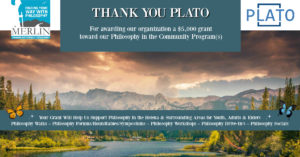 Our December Think & Drink was great fun! Some new faces joined our gathering and we enjoyed wonderful conversation about our voted upon (three-part) query of the day concerning revolution. Namely:
Our December Think & Drink was great fun! Some new faces joined our gathering and we enjoyed wonderful conversation about our voted upon (three-part) query of the day concerning revolution. Namely:
- How bad to things need to get (relative to environmental conditions, political conditions, etc.) for a social revolution to occur?
- Alternatively, do they really need to get that bad for a social revolution to occur?
- Do individuals have to be affected personally in order for a social revolution to occur?
Once we decided upon the aforementioned, we started by, first, exploring and trying to pin down what exactly is meant by the term ‘revolution’ — i.e., what is a revolution and are there necessary and sufficient conditions for revolution?
Among some of the thoughts and insights shared:
- It seems like there might be various kinds of revolutions. Typically we think of revolutions when we think of things like the Bolshevik revolution — intentional & organized acts aimed at overturning an existing system. But what about quiet, slow-burning revolutions that take place within the parameters of an existing system — e.g., computer revolution, internet.
- Must intent be present in order for a revolution to occur?
- A revolution is like dropping dynamite in an outhouse (thank you Michael Chapman for this colorful simile)
- Is it reasonable to suggest that all revolutions are evolutions, but not all revolutions are evolutions?
- And from this…the awesome zinger (courtesy of Ross Peter Nelson): “Revolution is carbonated evolution!”
- And much more…
As Michael Chapman noted in an e-mail sent post Think & Drink: “Philosophical discussion leads great minds to recapitulate the genius of the ancients!” Woot, woot, Helena!!
Turns out, that even Aristotle raised similar questions about revolution back in the days! Political revolution, he said, can be characterized as: (a) a complete change from one constitution to another, or (b) a modification of an existing constitution. Furthermore, he claimed, they appear to vary widely in terms of methods, duration, and motivating ideology and result in a variety of major changes in culture, economy, and socio-political institutions.
Thank you to P.L.A.T.O. (Philosophy Learning and Teaching Organization) for helping to support our philosophy in the community programs like these!

